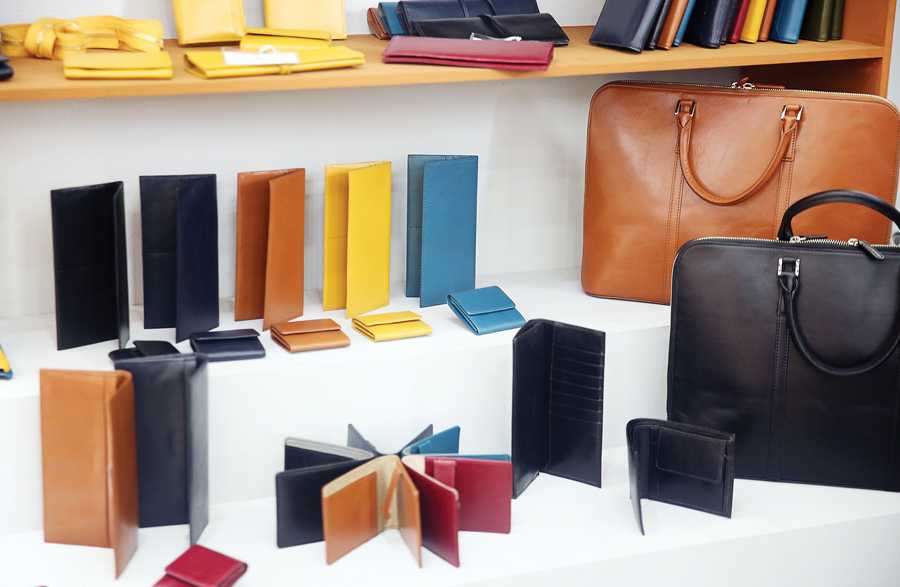Leather goods, footwear producers downhearted by decline in sales

Image collected
The once cheery demeanour of natural leather goods and footwear exporters has converted into one of depressive disorder as shipments declined 22 % in the just-concluded fiscal year due to the ongoing coronavirus pandemic.
The export of varied leather products fetched about $998 million in fiscal 2019-20, according to info from the Export Promotion Bureau (EPB).
Of the country's total exports, natural leather footwear earned $779 million while other leather goods accounted for $221 million and rawhide sales $98.31 million.
According to the manufacturers, the leather goods market has been severely impacted by the slump in revenue in the home and abroad due to the coronavirus pandemic.
Countries that contain been reach hard by coronavirus chosen nationwide lockdowns or placed restrictions on public motion in a good bid to curb the pass on of the deadly pathogen. This is especially true for several Bangladesh's major export destinations, including the US, Italy, Spain, UK and Germany.
The federal government has set a target to earn $5 billion in 2021 through the export of leather goods even though previous year's receipts totalled only $998 million.
In light of the problem, the Leather Goods and Footwear Manufacturer & Exporter's Association of Bangladesh (LFMEAB) has urged the EPB to withdraw source tax in export subsidy to help the industry recover amid the coronavirus fallout.
"We urged the EPB to make sure equal privileges for all export sectors by detatching inconsistencies among the sectors so that they can recoup the losses incurred for this reason pandemic," explained LFMEAB President Mohammad Saiful Islam.
The government gives preferential treatment to significant export sectors such as for example garment, he said.
"This can be regarded as discrimination against the natural leather sector," Islam added.
On October 30, 2019, Prime Minister Sheikh Hasina said that monetary incentives for the household leather goods industry would continue for at least another five years so that the country can achieve its export targets from the sector.
However, the sector only enjoys a 15 % cash incentive on shipments.
"So, we wish the same conveniences granted to the garment sector gets. This consists of taxes breaks on exports, imports, VAT, bonded warehouses etc," explained Nasir Khan, chairman and controlling director of Jennys Boots and shoes, a local pioneer in the produce and export of household leather footwear.
The leather sector shows promise as it may help diversify Bangladesh's export basket, he said.
Although leather goods manufacturers do more value-addition in comparison to their counterparts in the garment industry, apparel producers have already been given better facilities through the years.
Vietnam entered the global market for leather footwear only a decade ago however in that time, the Southeast Asian nation's export is continuing to grow to about $20 billion annually, said Khan, likewise the general secretary of LFMEAB.
Meanwhile, Bangladesh produced its first foray into the international arena for household leather goods three decades before. However, shipments possess hovered around the $1 billion-mark despite the fact that the united states is ripe with raw materials and human resources.
One could blame having less backward linkage sectors, inconsistent plans, lengthy customs types of procedures and harassment faced by companies when trying to secure a bonded warehouse or import recycleables as the key reasons for Bangladesh's slow exports in the leather sector.
"It would not be considered a tough work for the leather merchandise sector to broaden its exports to $10 billion by 2025 if the authorities, like the National Board of Revenue, EPB, port authority and banks cooperate with exporters," Khan said.
Other than rawhide, all the materials needed in the production of household leather goods are imported. Besides, customs officials do not allow companies to import enough recycleables for the entire year in one shipment.
This forces leather goods companies to import their necessities in phases, resulting in delays in production and subsequently, exports, he added.
There are about 60 local firms, including Apex Footwear, Jennys Shoes and Bay Footwear, that export various leather goods to largely Japan, the EU and some extent, the US.
However, if the roughly 165 footwear and household leather factories presently operating in Bangladesh had been compliant and used modern tools, they could fetch up to $5 billion in export receipts, according to the LFMEAB.
Bangladesh's leather things and footwear sector is failing woefully to get it big internationally even though the country has an abundance of rawhide and an experienced workforce.
Of the country's total production, only 30 % of the finished household leather is consumed locally as the remaining 70 per cent is exported, mostly to China.
The global leather footwear industry was valued at $246 billion in 2017 and is likely to reach $320 billion by 2021.
"Therefore, there is large prospect of growth among new business owners," Khan said, adding that Tk 20 crore will do capital to open a good factory with the capacity to create 1,000 pairs of shoes daily.
Mohammed Nazmul Hassan, managing director of Leatherex Boots Sectors, said that his service is in an uncertain situation because of the drastic fall of domestic revenue fell amid the coronavirus outbreak.
The global impact of the virus has continued to harm the set sector.
According to a recent survey by the Environment Footwear Business Condition, the intake of leather shoes or boots products could experience a 22.5 % decline by the finish of 2020.
Source: https://www.thedailystar.net
Previous Story
- Participation jumps by 57% at Bangladesh Denim Expo
- Heidelberg approves acquisition of Emirates Cement, Emirates power
- Bangladeshi scientists plan to turn waste into eco-friendly...
- Development through partnership Committing to contribute in the...
- Mercedes, BMW in talks to open assembling plants...
- Bangladesh now the fastest growing market in Asia:...
- Build unified sustainable blue economic belt: PM
- Huawei Mate 30 series to debut on September...